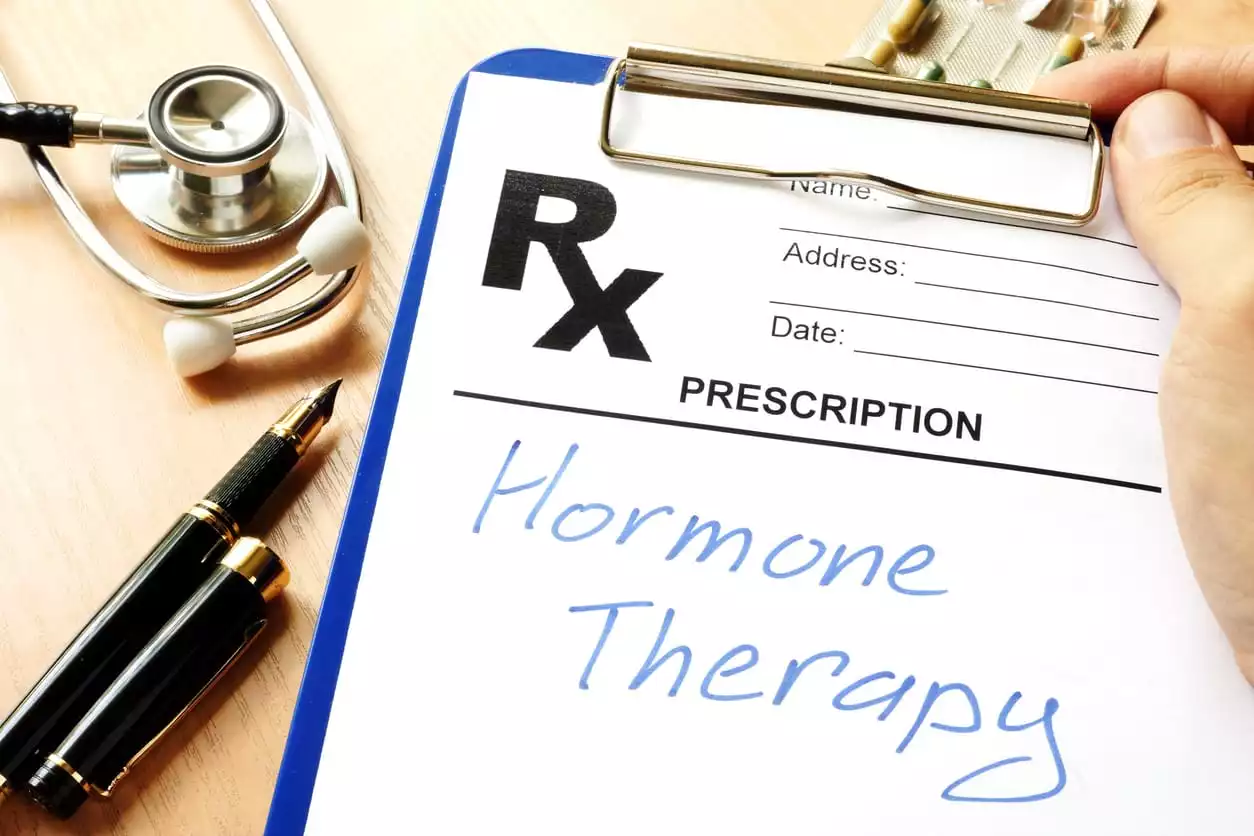
Without a doubt, one of the most standard treatment options for hormone conditions that involve low hormone levels is hormone replacement therapy (HRT). Physicians prescribe supplemental hormones to balance out hormone levels in the body, hopefully restoring healthy function.
But finding the right hormone at the right level?
That’s challenging – and some of the reason it’s challenging has to do with the fact that there is so much misinformation available. Urban legends and myths will convince you that hormone replacement is either a cure-all or a death sentence depending on what you read. Of course, neither of those statements is entirely true. Just like any other medication or treatment, HRT has advantages and disadvantages applicable depending on the patient’s unique health condition.
Pharmacists and doctors alike know that when patients have the truth and facts, they make better decisions about HRT options. Healthcare literacy is both the patient and healthcare team’s best weapon when attempting to correct hormone issues. That’s why we created this easy-to-follow, plain-English myth-busting guide.
Myth 1: HRT Causes Cancer
This is possibly the most common hormone replacement myth out there today. The idea that HRT causes cancer is not new, and truthfully, it isn’t 100 percent false, either. There is at least some evidence to show that hormone supplementation (especially estrogens) may raise the risk for certain cancers in certain patients. However, most of the studies demonstrating this risk point to a very, very small increase in risk – and the risk applies to an incredibly small subsection of the population.
The myth that hormone replacement widely causes cancer stems from a 2002 Women’s Health Initiative (WHI) study that monitored women taking hormones for 15 years. During the course of the study, researchers identified a heightened risk for breast cancer in menopausal women. The study was halted out of fear that the treatments may cause further harm. It eventually resulted in doctors significantly paring back on hormone replacement therapy as a whole.
The problem with this study is that it doesn’t take into consideration several very important variables. Firstly, the study looked only at HRT for menopause, and it only reviewed the use of a drug called Prempro – not other hormones.
Secondly, it vastly overgeneralized the message. Rather than calling cancer a risk in specific populations, it stated that all women taking hormones have a heightened risk for cancer. Future studies showed that cancer risk was largely tied to situational variables like genetics, whether or not a woman smoked, and previous incidences of cancer.
Myth 2: Synthetic Hormones are Best
Synthetic hormones work perfectly well for many patients. They take the medication, their hormone levels even out, their symptoms lesson. But many patients isn’t necessarily “all patients;” for some reason scientists can’t quite pinpoint yet, some people just seem to respond poorly to synthetics in general. Others may only respond to doses that just don’t exist in commercially-available synthetics. These patients may benefit more from naturals or compounded bioidentical hormone replacement therapy (BHRT).
There is also the issue of pesky fact, here, too. At the end of the day, a hormone is a hormone. As with other medications, which hormone works best depends on the patient and their natural biochemistry. One patient may respond better to bioidentical hormones, while another responds better to desiccated porcine-derived hormones. Still others do better with synthetics simply because their unique body structure has an easier time utilizing them.
The fact that some patients respond better to synthetics is no more a sign that they are best than the fact that some patients respond better to bioidenticals. Instead, it’s a sign that that particular patient responds to that specific medication best.
Myth 3: Every Patient Responds to HRT
While most patients do respond to HRT, not every patient will respond to HRT in the same way or at the same level. This is especially true for conditions like menopause and borderline hypothyroid; sometimes, the level of imbalance may be too slight to correct with medications. When these patients take hormones, even low doses may be too high, producing uncomfortable symptoms. Compounding pharmacies may be able to micro-adjust and customize the dose even further, solving this problem.
As mentioned previously, some patients just plain don’t seem to respond to certain forms of hormone replacement therapy, too. This is mostly an issue with synthetics, but there are others who fail to respond to dessicated or naturally-derived hormones. For these patients, sometimes other approaches or combination approaches are required.
If you have concerns about your HRT, or if you’re failing to respond to HRT, speak with your pharmacist and/or physician. You may have unique healthcare variables that make other treatments or custom-compounded treatments a better choice.
Myth 4: Hormone Replacement Causes Blood Clots
This myth comes from the same WHO study that designated HRT as increasing cancer risk. Like the cancer risk myth, it, too is based on overgeneralization. However, this time, it does have an inkling of sensibility to it.
Women taking estrogen-only hormone repalcement for menopause do have an increased risk to develop blood clots and even strokes, but much of that risk depends on lifestyle, genetics, and treatment delivery method. For example, a woman who smokes is significantly more likely to experience a clot or stroke than a woman who doesn’t.
The most recent research shows the risk rate to be approximately four to five cases out of every 1,000. This does represent a reasonably concerning risk, but researchers also identified something else that was really surprising. Within the same populations, women taking HRT experienced six to eight fewer heart-related deaths than the average non-medicated population.
What all of this information comes down to is a possibility, not a surety. Given the benefits identified, and the benefits HRT can provide in general, each patient must carefully weigh the pros and cons when deciding if HRT is right for them. If a patient experiences extreme or dangerous hormone conditions, coping with a slightly increased risk for clots may still be the better choice than not taking HRT at all. And, somewhat reassuringly, lifestyle adjustments (like choosing not to smoke) can helpfully lower the added risk.
Myth 5: Natural Hormones Aren’t Vegan
It isn’t clear exactly where this rumor first started – perhaps someone who assumed only one thyroid hormone source existed. Like the others, this, too, is mostly a myth.
Some hormones – primarily dessicated thyroid hormones – are sourced from pork or beef products. Others are from mare’s urine. This includes NP Thyroid, Nature Throid, Armour Thyroid, Thyroid-S, and Westhroid. Depending on one’s definition of vegan, these products may or may not be considered animal products. These same medications may also pose a problem for people of certain religions.
Fortunately, there are alternatives available. There are synthetics, like Synthroid and Cytomel, or plant-derived hormones, phytohormones. Most of these plant-based HRT options are from soy or yam, which both contain a precursor to the body’s own natural hormones. Despite the fact that they come from plants, most are considered bioidenticals.
Natural hormones aren’t just available for thyroid conditions, either; there are natural options available that aren’t from meat for menopause and/or other estrogen, testosterone, and progesterone conditions, too. If you’re vegan, and want to avoid animal products, just talk to your pharmacist -there’s plenty of alternatives available to help you treat your condition without breaking your vows.

 info@burtsrx.com
info@burtsrx.com

